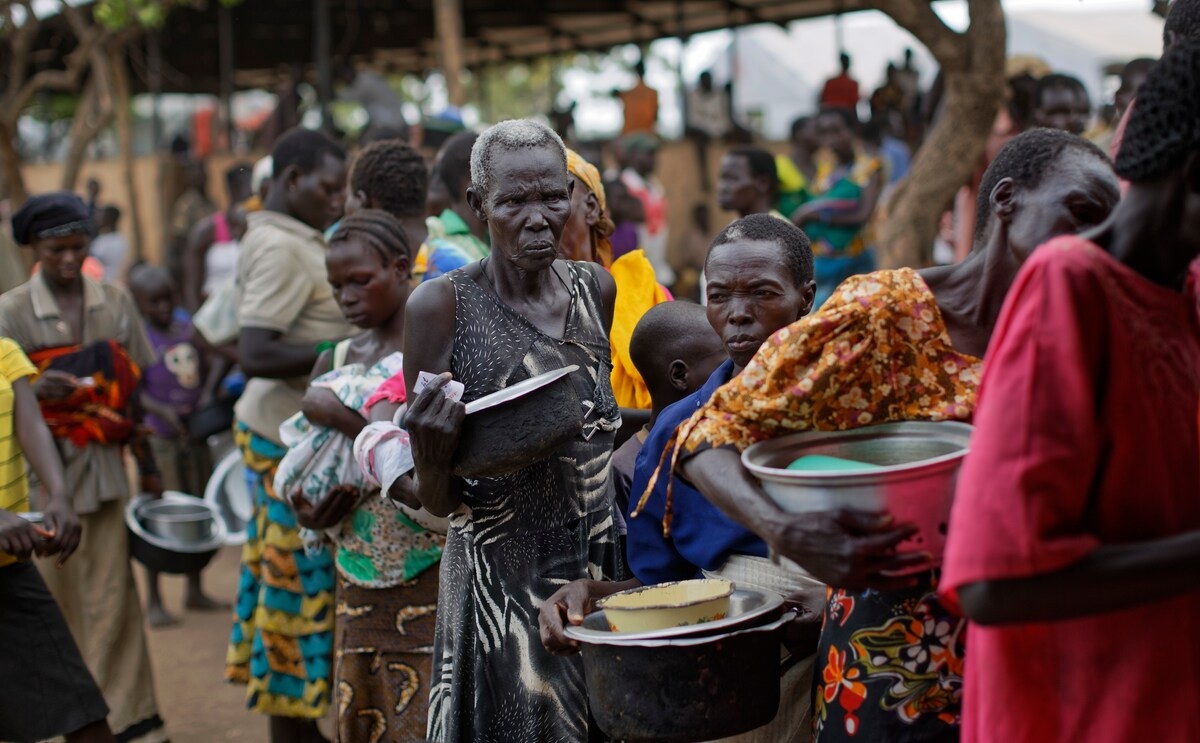More than 1.3 million Sudanese who were displaced by the country’s ongoing conflict have begun returning to their homes, the United Nations revealed on Friday, as it made an urgent appeal for increased international assistance to help the returnees rebuild their shattered lives.
Joint figures were disclosed from the UN’s International Organization for Migration (IOM), the UN Refugee Agency (UNHCR), and the United Nations Development Programme (UNDP).
According to them, over one million internally displaced persons (IDPs) have made their way back to their communities in recent months.
Additionally, around 320,000 refugees, primarily from neighbouring Egypt and South Sudan—have crossed back into Sudan since the beginning of 2024.
Although fighting has diminished in certain areas referred to as “pockets of relative safety,” the situation on the ground remains fragile and unpredictable, the UN agencies cautioned.
Sudan has been engulfed in a devastating civil war since April 2023.
The war was reportedly triggered by a violent power struggle between General Abdel Fattah al-Burhan, head of the Sudanese Armed Forces, and General Mohamed Hamdan Daglo, leader of the paramilitary Rapid Support Forces (RSF).
The brutal conflict has claimed tens of thousands of lives and displaced millions.
Since March, the Sudanese military has regained control of central, northern, and eastern parts of the country, including the capital Khartoum, while the RSF continues to hold territory in the western Darfur region.
Kordofan, in the south, has now emerged as the latest epicentre of the fighting.
In a unified statement, the IOM, UNHCR, and UNDP emphasized the urgent need for global financial support to stabilize return areas and restore essential services.
They warned that humanitarian operations in Sudan are drastically underfunded, despite the sheer scale of the crisis.
Currently, there are more than 10 million displaced persons across Sudan, including 7.7 million forced from their homes by the ongoing conflict.
Another four million people have fled to neighbouring countries.
Speaking from Port Sudan, IOM’s regional director, Othman Belbeisi, described Sudan as “the world’s largest humanitarian disaster—and one of the most forgotten.”
He noted that the majority of returnees, 71 percent, were heading back to Al-Jazira state, while eight percent were returning to the capital, Khartoum.
Many others were arriving in Sennar state, all located southeast of the capital.
Belbeisi projected that as many as 2.1 million people could return to Khartoum by the end of the year, depending on the evolution of security and the restoration of basic infrastructure and services.
“The war continues to inflict unimaginable suffering,” Belbeisi said.
“Sudan is a living nightmare.
“The violence must end.”
UNHCR’s regional coordinator for the Sudan crisis, Mamadou Dian Balde, who recently visited Khartoum and the Egypt-Sudan border, described the conditions faced by returnees as bleak.
Many are returning to towns with destroyed schools, hospitals, and roads, making recovery a daunting challenge.
Refugees returning from Egypt, he added, often come back with nothing.
UNDP’s Sudan representative, Luca Renda, warned of looming public health risks.
“If we don’t restore services, we may see further cholera outbreaks in Khartoum,” he said, stressing the urgent need to rebuild the water infrastructure and health facilities.
Renda reported that at least 1,700 wells across the country require rehabilitation.
In Khartoum alone, six hospitals and a minimum of 35 schools are in desperate need of repairs.
Complicating efforts further, he raised alarm over widespread contamination by unexploded ordnance (UXOs), including anti-personnel mines discovered in at least five areas in the capital.
“The scale of unexploded weapons in Khartoum is massive,” Renda noted.
“Full decontamination could take years.”
The UN officials concluded their briefing with a passionate appeal to the international community: support is urgently needed.
The support is not only to address immediate humanitarian needs but also to pave the way for long-term recovery and peace.
As millions of Sudanese begin returning to regions still scarred by war, the future of Sudan hangs in the balance.
Without sustained global assistance, the fragile hope of rebuilding may quickly fade under the weight of continued insecurity and neglect.







